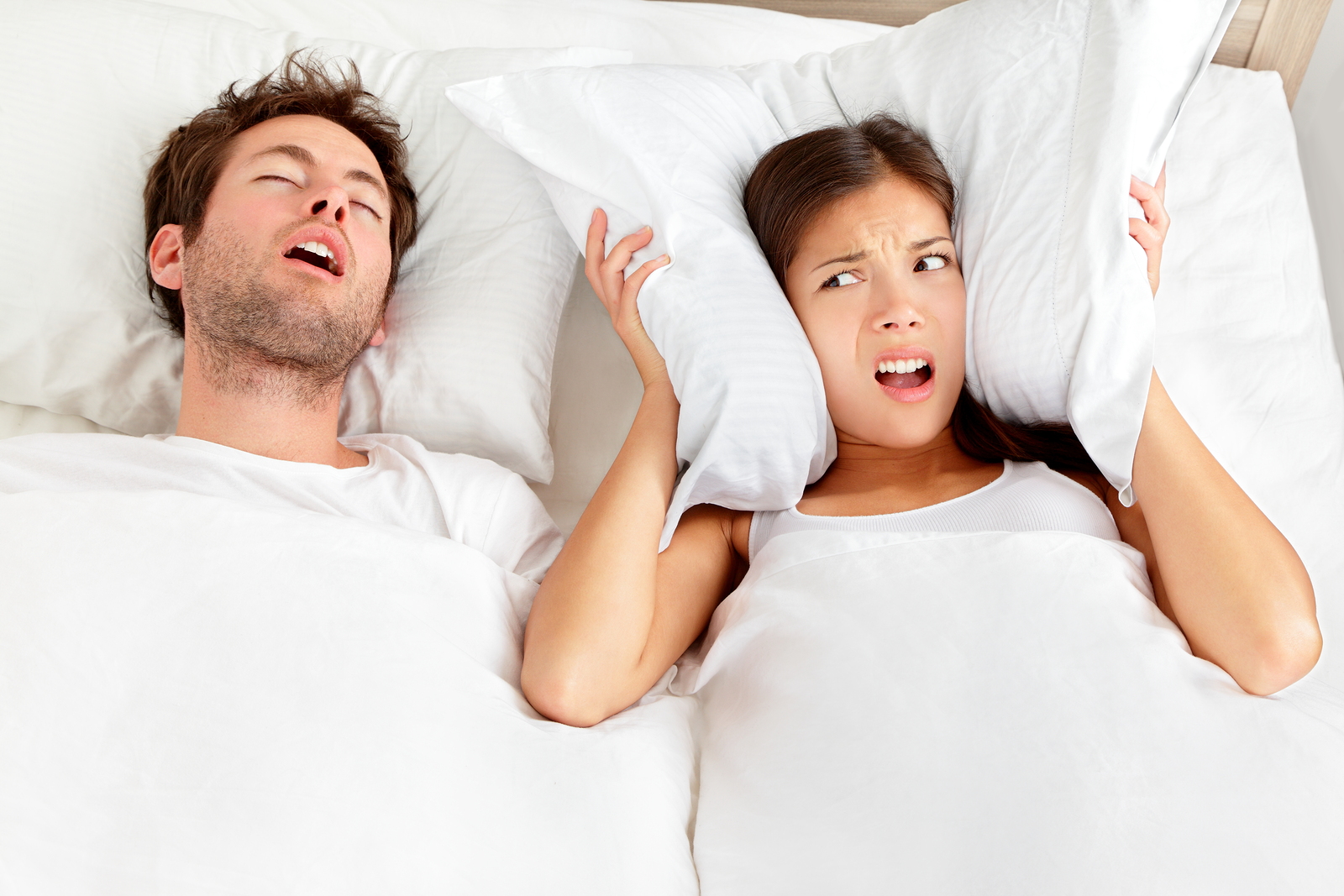Snoring is very common; studies have shown that about 40 percent of adult men and 24 percent of adult women are habitual snorers. With so many people snoring away, this involuntary sleep habit has to be harmless (albeit somewhat annoying), right?
Not always. Snoring is one of the main indications of obstructive sleep apnea, and it’s estimated that 22 million Americans suffer from this condition. Let’s look at just a few of the reasons sleep apnea shouldn’t be ignored.
What is Sleep Apnea? Obstructive sleep apnea (OSA) is the blocking of the airways to the degree that air can’t pass through at all. As a result, it is difficult or even impossible to breathe while sleeping.
The obstruction is often caused by the tongue moving too far back in the mouth and blocking the airway, or the muscles in the back of your throat relaxing too much to allow normal breathing. There are many reasons someone could have a higher risk of developing sleep apnea, including obesity or a naturally narrow airway.
The Effects of Sleep Apnea. Since sleep apnea basically results in temporary suffocation, it has some serious negative effects on the body. The first, and most immediate effect is that you wake up. Every time your airway is blocked, your body has to wake itself up in order to get you breathing again.
This can happen hundreds of times a night for those with severe sleep apnea. Since one full sleep cycle takes an hour to an hour and a half to complete, it’s impossible to get a truly restful and rejuvenating night’s sleep when you’re forced to wake up many times throughout the night.
The inability to get a full night’s sleep causes other problems; including the inability to concentrate, frequent headaches, and moderate to severe daytime fatigue. In extreme cases, you could potentially face heart disease, high blood pressure, and stroke if you don’t seek treatment for this sleeping disorder.
Snoring and Kids. Kids aren’t predisposed to snoring, so children who are known to snore regularly should be checked out by a dentist specializing in treatment for sleep apnea as soon as possible. Children suffering from OSA may display ADD-like symptoms, sometimes being misdiagnosed with ADD and put on medication as a result.
Treatment Options. The good news is that there are treatment options available that can help you get a full night of restful sleep night after night. The best known solution is a continuous positive airway pressure (CPAP) machine. This machine forces air into the nasal passages at pressures high enough to overcome obstructions in the airway and stimulate normal breathing. While the technology is proven, my patients complain that it is uncomfortable to wear, bulky to travel with, and too loud to sleep with.
Because of these complaints, many patients prescribed a CPAP machine don’t use it regularly enough to make a difference. The American Academy of Sleep Medicine recommends oral appliance therapy (OAT), which is a mouthpiece that actually prevents the obstruction from happening in the first place. This device is portable and silent, making it more appealing than the alternative.
Talk to your Dentist. Remember, not everyone who snores has sleep apnea, but if you feel like these symptoms sound like you, it’s best to talk to your dentist about it. Don’t let a persistent snore affect your wellbeing!
Click here for more blogs by Dr. Steven Freeman.

